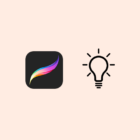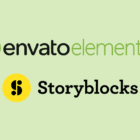GitHub Satellite, the company’s annual product and community event, went virtual this year for the first time but marched forward with the usual major product announcements. GitHub is ramping up its offerings with four new products: an IDE, a discussion platform, code scanning, and private instances.
Codespaces is the platform’s new built-in IDE that lets users code in the browser with minimal setup. The product is based on the VS Code editor and includes terminal access, support for code completion, and extensions:
Codespaces can be configured to load your code and dependencies, developer tools, extensions, and dotfiles. Switching between environments is simple—you can navigate away at any time, and when you switch back, your codespace is automatically reopened.
The IDE was created to facilitate contribution but it also enables better development on mobile devices. GitHub design lead Joel Califa shared a demo of how he uses Codespaces on his iPad:
GitHub plans to implement a pay-as-you-go pricing model for Codespaces, but it will be free during the limited beta. This product should complement the recent launch of GitHub’s mobile apps for iOS and Android in March, which allows users to manage projects, tasks, feedback, and pull requests.
Discussions is a new feature that stands to have a more meaningful impact on open source communities. GitHub issues and pull requests have long been the home of most conversations, but oftentimes this type of collaboration would be better served with features more tailored to a knowledge base. Discussions offer a threaded format where questions can be marked as answered. Participation in discussions counts towards users’ contribution graphs. GitHub plans to put the feature into beta for public repositories soon.

GitHub also announced code scanning, powered by CodeQL, a semantic analysis engine trained to find vulnerabilities. When code scanning is enabled, every `git push` is inspected by CodeQL for potential vulnerabilities and the results are displayed in the pull request. Code scanning is free for open source software.
Secret scanning, which has been enabled on public repositories since 2018, is now available for private repositories. It scans code for known secret formats and notifies developers upon finding something. At the beginning. of 2019, GitHub announced that it was giving free users access to unlimited private repositories. Adding secret scanning to private repositories is the next natural step, as these have likely grown in number after being added to the free tier.
While many of GitHub’s new features are aimed at free users and open source communities, this week’s announcements also include a new enterprise product called Private Instances:
Today we introduced our plans for GitHub Private Instances, a new, fully-managed option for our enterprise customers. Private Instances provides enhanced security, compliance, and policy features including bring-your-own-key encryption, backup archiving, and compliance with regional data sovereignty requirements.
After Microsoft acquired GitHub for $7.5 billion in 2018, the company has aggressively worked to make its product more compelling in the highly competitive space of code sharing platforms, starting with the free tier. Pricing has not yet been finalized for any of the revenue-generating products announced this week, as GitHub may be testing the waters to gauge the community’s reaction before launch.




